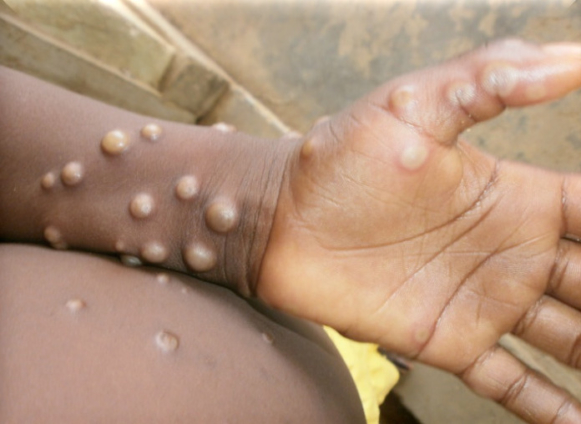
Brazzaville, Congo (Republic of the)// — Africa is facing a growing risk of outbreaks caused by zoonotic pathogens, such as the monkeypox virus which originated in animals and then switched species and infected humans.
The analysis finds that between 2001-2022 there were 1843 substantiated public health events recorded in the WHO African region. Thirty percent of these events were zoonotic disease outbreaks.
The latest data on monkeypox finds a significant increase in cases since April 2022, compared to the same period in 2021. The increase is mainly observed in the Democratic Republic of the Congo and Nigeria, and could partly be attributed to enhanced monkeypox surveillance and laboratory testing capacity in the countries, though detailed investigations are underway.
The increase in zoonotic cases may be due to several reasons. Africa has the world’s fastest growing population and there is a growing demand for food derived from animals including meat, poultry, eggs, and milk. The population growth is also leading to rising urbanization and encroachment on the habitats of wildlife.
“Infections originating in animals and then jumping to humans have been happening for centuries, but the risk of mass infections and deaths had been relatively limited in Africa. Poor transport infrastructure acted as a natural barrier,” Dr Matshidiso Moeti WHO Regional Director for Africa said.
Stemming the rise in zoonotic diseases in Africa is complex and WHO recommends a one-health approach which requires multiple sectors, disciplines, and communities to work in collaboration.
More research is also needed, to identify environmental, socioeconomic, and cultural factors that boost the emergence and transmission of epidemic-prone diseases, as well as to better understand the factors that affect the impact and spread of epidemics, including the immune status, nutrition, genetic and antimicrobial resistance.
“We need all hands on deck to prevent and control zoonotic diseases such as Ebola, monkeypox and even other corona viruses,” said Dr Moeti. “Zoonotic diseases are caused by spillover events from animals to humans. Only when we break down the walls between disciplines can we tackle all aspects of the response.”
Since, 2008 WHO has strengthened its regional collaboration with the Food and Agriculture Organization of the United Nations and the World Organization for Animal Health to support efforts to address zoonotic outbreaks across Africa. Recently, the three agencies worked together in the 14th Ebola outbreak, which just ended in the Democratic Republic of the Congo.
Dr Moeti spoke during a virtual press conference today. She was joined by Dr Franklin Asiedu Bekoe, Director Public Health, Ghana Health Service and Dr Karim Tounkara, Regional Representative for Africa, World Organisation for Animal Health (OIE).
Also on hand from WHO Regional Office for Africa to respond to questions were Dr Opeayo Ogundiran, Epidemiology Pillar Lead for the Regional COVID-19 Response; Dr. Charles Okot Lukoya, Epidemiologist; Dr Pamela Mitula, Routine Epidemiology and New Vaccine Officer; Dr Tieble Traore, Technical Officer; and Dr Solomon Woldetsadik, Emergency Response Officer.


